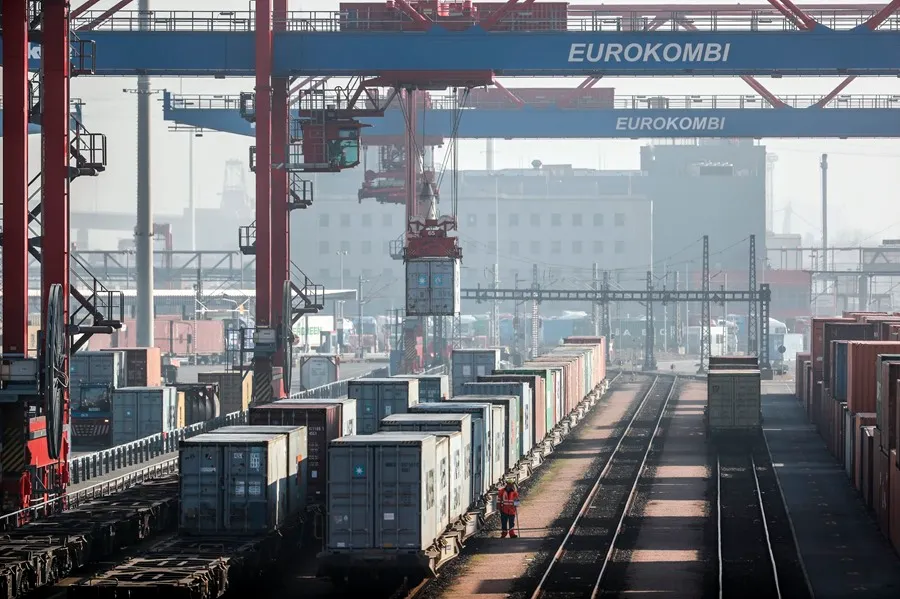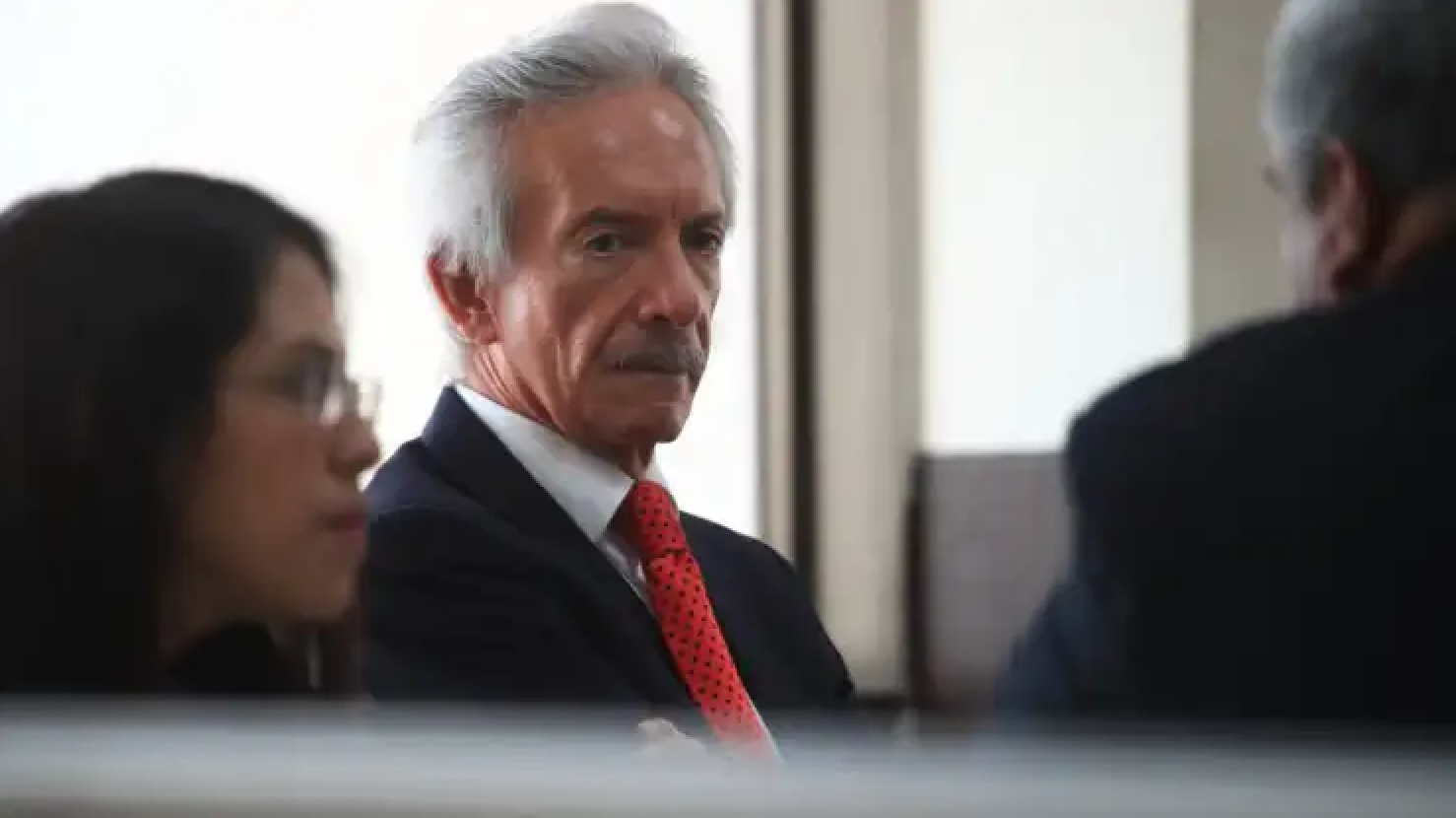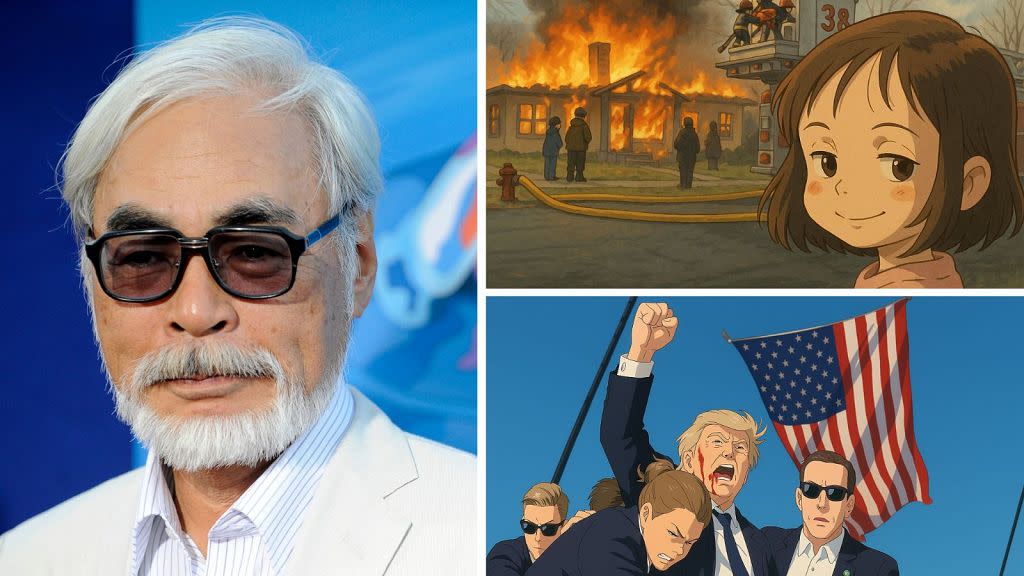International
Trump threatens to impose tariffs on governments that apply digital fees to US companies

The President of the United States, Donald Trump, signed an executive order on Friday that threatens to impose tariffs on foreign governments that apply digital fees to US companies, including Spain, the United Kingdom and France.
The order states that “foreign governments have exercised a growing extraterritorial authority over US companies, particularly in the technology sector,” and directly cites the taxes on digital services that “several business partners” apply since 2019.
According to the text, the Trump Administration will impose tariffs on those governments that use taxes or regulations that are “discriminatory, disproportionate or designed to transfer significant funds or intellectual property from US companies to that government or its chosen domestic entities.”
Trump delegates to the US Trade Representative the possibility of “renewing investigations” on the so-called technology fees of Spain, the United Kingdom, France, Italy, Austria and Turkey, imposed in the first term of the Republican, and if so, “take all appropriate actions”, which would include the imposition of tariffs.
“US companies will no longer sustain failed foreign economies through fines and extortionational taxes,” says the White House document, which provides for a “process” for them to “report” these “disproportionate” measures to the Commercial Representative.
He also instructs him to investigate together with the Secretaries of the Treasury and Commerce whether in the European Union or the United Kingdom the use of products or services of US companies is “required or encouraged” to “undermine freedom of expression”, political activity or, “otherwise, moderate content”.
It also suggests to the Representative, among other things, to hold “a panel” with its partners of the T-MEC (Canada and Mexico) on the tax on digital services in Canada, and identify ways to achieve a “permanent moratorium on customs duties on electronic transmissions”.
The order does not mention any specific company, but mainly affects large technology companies such as Apple, Google (subsidiary of Alphabet), Meta and Amazon, which have precisely starred in a resounded approach to President Trump since he won the elections in November.
In his first term (2017-2021), Trump ordered to investigate the digital fees to his companies abroad and threatened to apply tariffs to the six countries indicated today; taxes were imposed in the government of his successor, the Democrat Joe Biden, and subsequently suspended.
Trump signed another executive order aimed at restricting access to US technology, especially in the field of artificial intelligence, what he calls “foreign adversaries”, including Cuba, Venezuela, Iran, Russia and China.
The executive order does not specify in detail what measures will be taken to restrict the access of these “foreign adversaries” to US technology.
Under the label of “foreign adversaries”, the order identifies China, Hong Kong, Macau, Cuba, Iran, North Korea, Russia and the “regime of Venezuelan politician Nicolás Maduro”, according to the text.
Trump justifies his decision with the argument that “economic security is national security” and maintains that the country must protect its sensitive infrastructures and technologies, from artificial intelligence to semiconductors and advances in biotechnology.
The executive order focuses especially on China, pointing out that companies linked to Beijing have used investments in the US to access key technologies and that the Chinese government is taking advantage of US technology to modernize its military apparatus.
Since his return to the White House on January 20, Trump has announced several restrictions on trade with the aim of balancing the trade balance and pressuring countries such as Mexico and Canada to make concessions on immigration and efforts against drug trafficking.
It has imposed a 10% tariff on China, which is in addition to the rates already applied during its first term (2017-2021).
Trump’s new restrictions come after his predecessor, Joe Biden, took steps to limit exports of semiconductors and artificial intelligence technology to China, which led Beijing to respond with export controls on graphite, a key material for electric vehicle batteries.
International
Son of journalist José Rubén Zamora condemns father’s return to prison as “illegal”

The son of renowned journalist José Rubén Zamora Marroquín, José Carlos Zamora, has denounced as “illegal” the court order that sent his father back to a Guatemalan prison on March 3, after already spending 819 days behind barsover a highly irregular money laundering case.
“My father’s return to prison was based on an arbitrary and illegal ruling. It is also alarming that the judge who had granted him house arrest received threats,” José Carlos Zamora told EFE in an interview on Saturday.
The 67-year-old journalist was sent back to prison inside the Mariscal Zavala military barracks on March 3, when Judge Erick García upheld a Court of Appeals ruling that overturned the house arrest granted to him in October. Zamora had already spent 819 days in prison over an alleged money laundering case.
His son condemned the situation as “unacceptable”, stating that the judge handling the case “cannot do his job in accordance with the law due to threats against his life.”
International
Miyazaki’s style goes viral with AI but at what cost?

This week, you may have noticed that everything—from historical photos and classic movie scenes to internet memes and recent political moments—has been reimagined on social media as Studio Ghibli-style portraits. The trend quickly went viral thanks to ChatGPT and the latest update of OpenAI’s chatbot, released on Tuesday, March 25.
The newest addition to GPT-4o has allowed users to replicate the distinctive artistic style of the legendary Japanese filmmaker and Studio Ghibli co-founder Hayao Miyazaki (My Neighbor Totoro, Spirited Away). “Today is a great day on the internet,” one user declared while sharing popular memes in Ghibli format.
While the trend has captivated users worldwide, it has also highlighted ethical concerns about AI tools trained on copyrighted creative works—and what this means for the livelihoods of human artists.
Not that this concerns OpenAI, the company behind ChatGPT, which has actively encouraged the “Ghiblification”experiments. Its CEO, Sam Altman, even changed his profile picture on the social media platform X to a Ghibli-style portrait.
Miyazaki, now 84 years old, is known for his hand-drawn animation approach and whimsical storytelling. He has long expressed skepticism about AI’s role in animation. His past remarks on AI-generated animation have resurfaced and gone viral again, particularly when he once said he was “utterly disgusted” by an AI demonstration.
Central America
Nicaragua revokes legal status of 10 more NGOs, bringing total to over 5,600
The Nicaraguan government canceled the legal status of 10 more non-profit organizations on Friday (March 28, 2025), including the Swiss Foundation for Development Cooperation, bringing the total number of non-governmental organizations (NGOs) shut down since December 2018 to over 5,600.
According to the Ministry of the Interior, the Swiss Foundation for Development Cooperation, which had been registered since March 9, 2002, was found to be in non-compliance for failing to report its financial status for 2024 and for having an expired board of directors.
Among the 10 NGOs whose legal status was revoked were religious organizations, educational groups, consumer associations, and aquaculture organizations, all dissolved “voluntarily” or closed under similar reasons.
As of today, more than 5,600 NGOs have been dismantled following the popular protests that erupted in April 2018 in Nicaragua. In most cases, the assets of these organizations have been ordered to be transferred to the state.
-

 International4 days ago
International4 days agoFederal court blocks Trump’s use of Enemy Alien Act for deportations
-

 Central America4 days ago
Central America4 days agoKristi Noem in Latin America: Talks with Bukele on expulsions and security policies
-

 Central America4 days ago
Central America4 days agoHonduran group in U.S. pushes for voter registration to prevent election fraud
-

 International4 days ago
International4 days agoEcuador oil spill worsens as containment dam collapses
-

 Central America3 days ago
Central America3 days agoNicaragua denounces Costa Rica’s position in SICA as aligned with foreign interests
-

 Central America3 days ago
Central America3 days agoNicaragua’s new judicial law consolidates power in Ortega and Murillo’s hands
-

 Central America3 days ago
Central America3 days agoPanama’s president declares Darién gap ‘closed’ amid sharp drop in migrant flow
-

 International3 days ago
International3 days agoMarco Rubio warns Venezuela against military action against Guyana
-

 International16 hours ago
International16 hours agoSon of journalist José Rubén Zamora condemns father’s return to prison as “illegal”
-

 International16 hours ago
International16 hours agoMiyazaki’s style goes viral with AI but at what cost?
-
Central America1 day ago
Nicaragua revokes legal status of 10 more NGOs, bringing total to over 5,600















